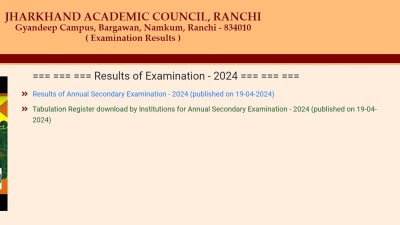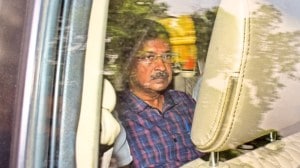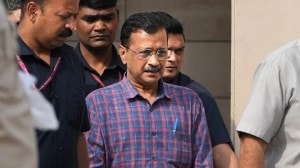- India
- International
Maratha rallies: Not just quota, they want jobs for women too
Almost 60 per cent of the participants at the rallies across the state were women.
Kondyabai Sitaram Phatangade (68), a resident of Kasara-Dhumala village in Sangamner taluka of Ahmednagar district travelled 100 kilometre to participate in the Maratha rally at Ahmednagar town on September 23. Kondyabai had only one demand: a job for her 24-year-old daughter-in-law Archana.
Her head covered with the pallu of her saree, glass bangles in both hands, pointing to her daughter-in-law, Kondyabai said, “ Look at Archana. She has completed D.Ed (Diploma in Education) after school. But she has no job. She is forced to work in the fields for a livelihood.” Kondyabai’s son is a fruit vendor.
Almost 60 per cent of the participants at the Maratha rallies across Marathwada, Western Maharashtra, Northern Maharashtra were women.
And just like Kondyabai, most of them believe that reservation would break the age-old barriers and pave the way for their daughters and daughters-in-law to get jobs.
The breaking of joint families coupled with other reasons, in rural Maharashtra, is giving way to urban lifestyle both socially and economically.

For example, Meerabai Laxman Kolhe, 65, has had never stepped outside her own agriculture farm. Today, she wants her daughter-in-law Padma Kolhe to work in a government or a private office.
Kolhe says, “If my daughter-in-law is educated, why should I make her sit at home and ask her to make chapatis? Why waste her education? I want her to pursue higher studies and get a job.”
Reminiscing the past, she adds, “During our times, women’s education had no value. It was understood that we will have to work at home and lend a helping hand at the family farm.”
Ulka Mahajan, a social activist, explains, “The growing trend among rural Maharashtra’s agricultural households to step out for jobs is an outcome of higher literacy rate and awareness as well.”
Mahajan, the author of a Marathi novel based on rural Maharashtra Kosalta Goan Gada, said, “In the past, patriarchal rigidity coupled with conservative mindset in the Maratha community held women indoors. They strictly observed norms like covering their heads. Even women working in fields had to ensure the “pallu” (covering head with saree) from her head was not displaced.
According to Shobha Autani, from Darewadi village in Ahmednagar, “Now, the women are in the forefront because we want equal rights and opportunities in education and employment.”
Not surprisingly, Bhausaheb Bondre, of Loni village at Ahmednagar, sends his daughters Bhagyashree and Sonali, to colleges that are 15 km away by private bus for higher studies. While Sonali is pursuing a nursing course, Bhagyashree is studying BSc agriculture. The changes in rural Maratha depict the growing urbanisation that has begun to bridge the gap between the city and the village.
According to a study of urban development department, 45 per cent urbanisation in Maharashtra is the highest in the country. Over the years, the growing urbanisation of rural Maharashtra coupled with literacy and assured income from farm sector, appear to have brought the changes.
Click here to join Express Pune WhatsApp channel and get a curated list of our stories
Apr 19: Latest News
- 01
- 02
- 03
- 04
- 05






































